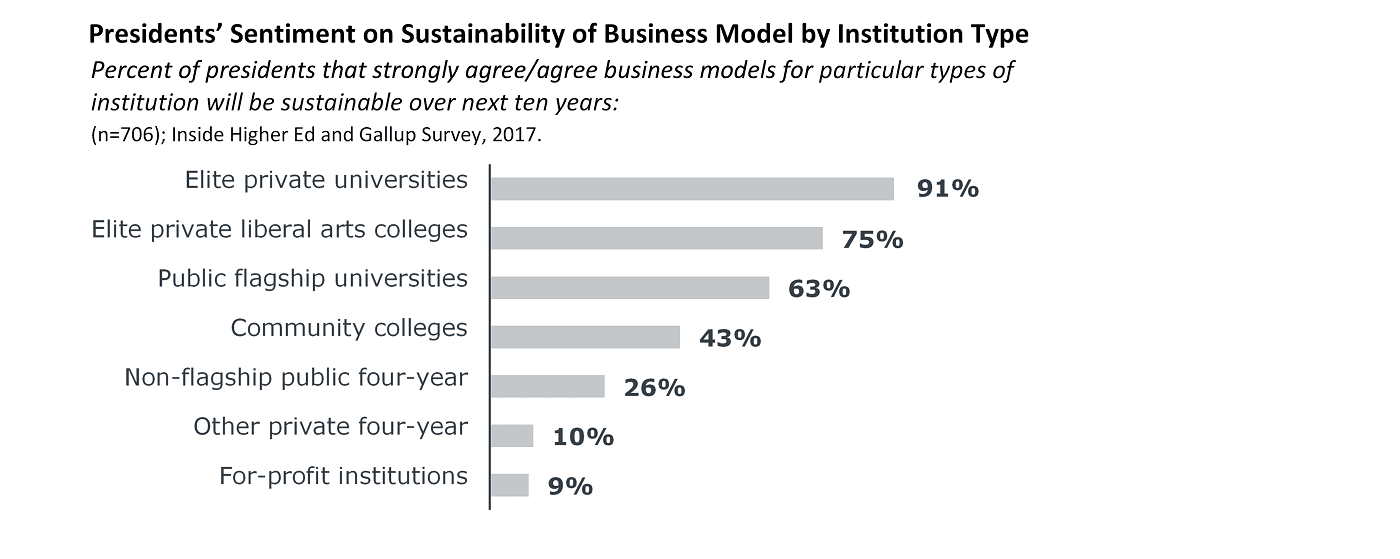While many institutions are assessing the viability of blockchain for accreditation and credential validation, one group used the buzz around this emerging technology to plant the seeds of a radically redesigned educational experience. With Woolf: A Borderless University, scholars from the University of Oxford in the UK are attempting to use digital technologies to scale the one-on-one teaching methods of the historic institution. For traditional universities and colleges, Woolf offers a provoking example of what’s possible when new technologies are embraced to support core educational missions.
In their initial marketing materials, the UK’s accreditation-seeking Woolf University touted themselves as “the world’s first blockchain university”. Their native blockchain will serve as the administrative backbone to their newly conceived institution, limiting what critics of today’s universities and colleges would term the bloated “overheads” of higher education by facilitating direct payments between students and their teachers.
But beyond the blockchain hype that brought international attention, CIOs and institutional leaders should take note of the experience that Woolf is offering. Using digital technologies, the academics behind the project have envisaged a new business model for higher education that anchors a digital university around the process—and not the place—of learning. Woolf will be borderless, and its education will be personalized to every single student.
Subscribe
Let us help you bridge the gap between IT performance and campus expectations, between requirements and reality.
Sign UpTutorial teaching: A one-on-one experience for students
Tutorial teaching, which forms the core of teaching at the Universities of Oxford and Cambridge in England, is a practice in Socratic pedagogy. Much like the notion of “flipped classrooms”, tutorials rely on students completing work (essays and problem sets) before their class begins. But unlike a larger flipped class experience, tutorial students spend their credit hour alone or in a pair, directly defending their work and discussing relevant theories with a professor in the field. Professors, known as tutors, often tailor their materials and discussions to the interests of their individual students, and provide direct mentorship through the course curriculum. At the end of a course of tutorials, students sit standardized tests to apply their learning to new prompts and ideas.
Woolf: Using technology and discontent to scale personalized pedagogy
In transportation, Uber leveraged excess capacity (cars on the road) to supply unmet demand (local travelers taking short trips). In the realm of holiday accommodation, Airbnb brought about the same disruption. In media and film, Netflix trailblazed a streamlined customer experience and brought content directly to the homes of those who wanted it. For education, Woolf aims to provide this same style of experience.
By tapping into the growing body of PhD holders who are feeling the pain of a tightening talent marketplace, Woolf University hopes to connect every student with a personal guide through their academic discipline. Unlike Massive Open Online Courses (MOOCs), which focused technology efforts on scaling the content of curricula, Woolf is aiming to scale critical conversation and direct, personalized feedback – the gold dust of education. Whether tutorials take place in coffee shops or through computer screens, students are guaranteed bespoke academic guidance, while professors receive direct compensation for their teaching efforts in a one-to-one billing model built around blockchain.
An open question for university leaders: What does innovation look like for us?
Whether Woolf’s brand of student-centric, capacity sharing education will find widespread success remains to be seen. But the model, its aims, and execution all warrant deep consideration among campus leaders and educational technology evangelists – especially as existing business models lose executive confidence.

When polled on the long-term sustainability of higher education’s various business models in 2017, university presidents expressed some level of skepticism for every sector. With only one in 10 feeling confident in the viability of private baccalaureates, and the same number skeptical of even the wealthiest elites, enough discomfort exists across the board to suggest that a deep rethinking of the higher education “product” is on the horizon.
The academics behind Woolf believe that personalized, tutorial-based pedagogies provide a best-in-class education. The educational community they’re building puts that belief at its core, and then leverages digital technologies and an oversupply of highly skilled academic labor to provide that personal experience at scale. Technology is not the driver, but the facilitator of their vision. But tutorial teaching is neither universally applicable, nor universally desirable. So, as the need for innovation rises up the institutional agenda, and campus leaders ask “what, specifically, is our institution trying to deliver?”, CIOs and their teams must be ready to discuss the new and differentiating ways that technology can help to bring those missions to life.
